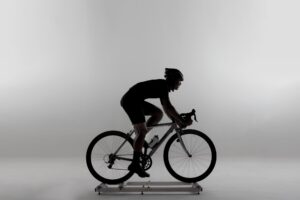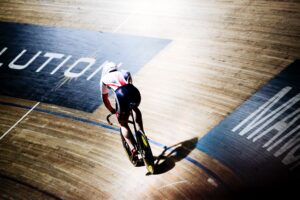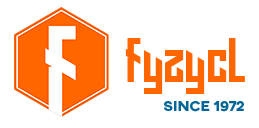“Training” is perhaps the most common term people use when they wish to improve at something.
When it comes to sports, people are usually “in training” for an event, to get fitter, faster, stronger, or simply to get healthier. “Training” is often a term people also use for working-out (usually on a regular basis).
Training - to develop and improve (a mental or physical faculty) through instruction or practice.
Oxford Dictionary
But what happens when we "train", what are we actually doing?
Your body is an amazing machine - when stressed at the right level it will adapt to increasing levels of fatigue or training load that you place on it, over time this adaptation will make you bigger, badder, rougher, tougher and done right, your training may even enable you to reach those heady goals you set out to achieve.
Push too hard or too fast though and your body will not be able to cope. You will overtrain often resulting in injury, illness or set-backs.

Finding a balance is key
By understanding the following key training principles and putting them into (good) practice you can develop your fitness whilst also avoiding overtraining.
OVERLOAD – involves pushing your body (in a single session) beyond what it is used to. A workout, a hard effort, a level of stress on your system that is often uncomfortable or expressed in terms of a level of suffering or pain. How much you can overload is relative to your existing fitness levels, and should be built up gradually over time. By repeatedly overloading your system in a controlled manner, your fitness levels will progress, and so the levels of exertion and intensity required to overload your system will also increase in order for you to continue to progress. Overload is therefore relative to your fitness levels or progression.
PROGRESSION – is closely linked to the cumulative effects of overloading your system over time. To reach goals that are currently out of your reach you will need to progressively overload your system. In order to progress, you will need to not only overload your system in a controlled manner but also allow your body to recover and adapt to the increased stresses you are placing on it.
RECOVERY – is probably the most ignored but supremely important aspect of training in motivated athletes. When you overload, your body becomes fatigued and needs time to recover and repair the damage you have done to it by overloading. When you rest after training your body “super-compensates” for the stress you have done to it, and this is where you actually get fitter! This super-compensation or ADAPTATION is what allows you to go further, faster, harder than you did the last time. So good sleep, resting for one day, several days or even whole weeks off from your training is key to allowing your body to recover from the damage your training causes and allows it to rebuild itself stronger and fitter than ever before.
Train hard, recover well, repeat ... what else do I need to know?
SPECIFICITY – simplest way of explaining this is that you will get better at the things you practice or train for. If you wish to be a better cyclist, then cycle more. If you want to run, or swim or skate, then you will improve if you do more of whatever it is you are trying to improve. To a certain degree this is also true for sprinters or long distance athletes, train what you wish to improve. (some training methods don’t directly follow this principle, however as a base concept for training, this is a solid principle to understand and keep in mind)
INDIVIDUALISATION – There is no “one training plan fits all” solution to achieving your goals. Given the same stimuli and stresses your body may respond very differently to that of other athletes. What works for one person may not work for another. Any good coach understands this and will individually adapt training workouts and plans for their athletes. You should bear this in mind, observe the impacts of your training and learn what works best for you.
REVERSIBILITY – This is essentially the opposite of progression. What goes up, usually does come down. So whilst increased training loads lead to progress, reducing the training load will lead to you losing fitness. Once you get fit does not mean you will stay fit unless you keep the the work rate up!
NUTRITION / HYDRATION – Giving your body the right kinds of foods and fluids at the right times is key to your performance and recovery. Good basic principles for nutrition and hydration are well known and will get you you started. However specificity also comes in to play, so the better your understanding what your body needs before, during and after exercise, the better your progression process will be.
Recent posts on FYZCL

Training – Basic principles you need to know
“Training” is perhaps the most common term people use when they wish to improve at something. When it comes to sports, people are usually “in

Training #101
OK, so you can ride a bike, but you want to improve … Maybe you’ve entered a race or an event, or you have a

What’s Fyzycl all about?
(aka: mission statement) Fyzycl (read: physical) … is about helping you enjoy your own health and fitness journey no matter what that is. Being better

rolling things out …
fyzycl – almost there! focus: {cycling, training and coaching, nutrition, tips and tricks, maintenance, kit and gear reviews, how to’s, technology, … } aim: {empowering and helping others

test post – let’s see how things look
So this is a simple starter for 10 to see how things are looking… mad ramblings and all sorts of blah soon to follow

